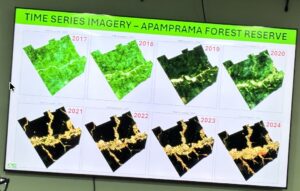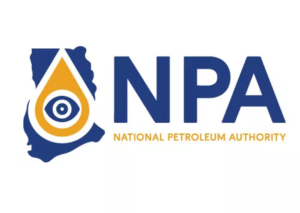
Photo: Acting Chief Executive Godwin Kudzo Tameklo
The National Petroleum Authority (NPA) has announced plans to intensify enforcement actions against oil marketing companies that flout industry regulations, in a bid to stabilise Ghana’s downstream petroleum sector. Speaking at the opening of the second edition of the NPA Downstream Compliance Workshop in Accra, Acting Chief Executive Godwin Kudzo Tameklo affirmed the Authority’s commitment to upholding operational standards across the sector.
While pledging to adopt a more human-centred approach to enforcement, Tameklo warned that sanctions would still be imposed on companies found in breach of established regulations. ‘As the acting CE of this Authority, I will not do anything to harm your business, but if you go contrary to the law, we will ensure full compliance,’ he stated.
The three-day workshop, attended by key stakeholders including Bulk Oil Import, Distribution and Export Companies (BIDECS), Oil Marketing Companies (OMCs), LPG Marketing Companies (LPMCs), and storage depot operators, aimed to address critical compliance issues in the sector. Workshop topics included Unified Petroleum Price Fund Regulations, Claims Management, and Compliance in Petroleum Product Imports, Exports, and Distribution Operations. Other areas of focus included Licenses, Permits, Legal Requirements, and Local Content.
Tameklo emphasised that the objective was to foster a regulatory environment conducive to industry growth while ensuring safety and operational efficiency. ‘Regulations come with the law, and the law is the law. Once the law is the law, non-compliance comes with sanctions,’ he reiterated.
Referencing several fire incidents, including the 2017 Atomic Junction explosion, he stressed that enforcement efforts would be intensified to prevent similar occurrences. The NPA’s regulatory approach, Tameklo said, would now include a five-day grace period for companies to comply with directives before further actions are taken. However, he warned that firms failing to comply within the grace period would have to face the consequences of their actions.
Meanwhile, Dr. Riverson Oppong, CEO of the Chamber of Bulk Oil Marketing Companies (COMAC), urged stakeholders to address bureaucratic bottlenecks that hinder the sector’s growth. ‘For the downstream sector to thrive, we must overcome these bureaucratic bottlenecks and ensure regulatory processes are swift and transparent,’ he stated.
Dr. Oppong further underscored the importance of strategic planning to meet the growing demand for petroleum products, particularly in underserved regions like the Upper East, adding that regulatory reforms are vital for sustainable sector growth.






